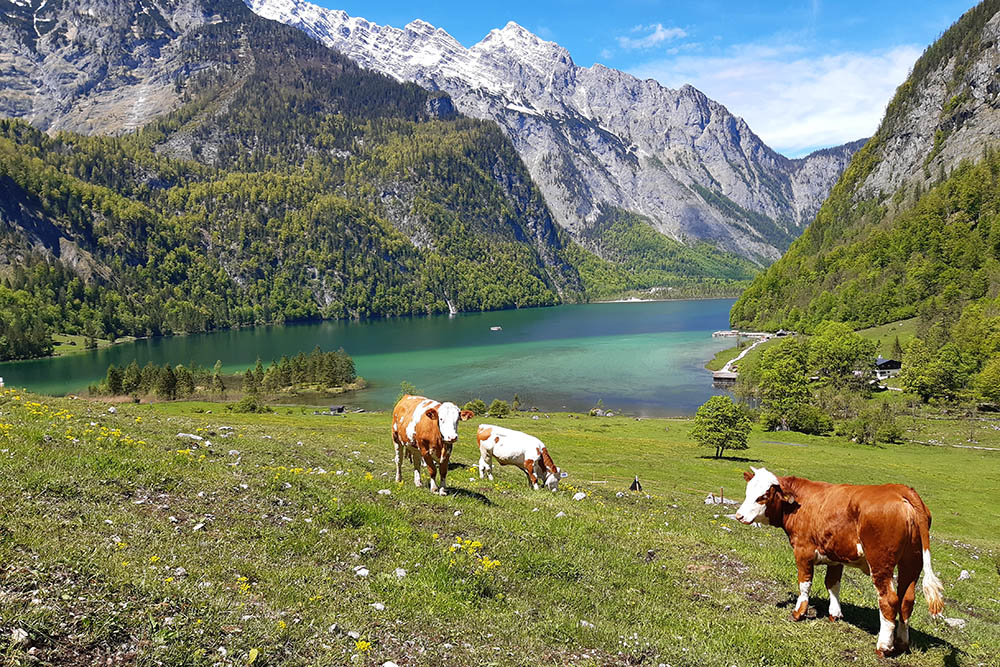Alpine pastures and climate change
The advancing climate change requires a longer vegetation period and an increased productivity of the alpine pastures. In order to counteract scrub encroachment or even abandonment of alpine pastures, adapted pasture management is necessary. The effects of the changed grazing regime on plant and insect communities have to be investigated as well as the effects on forage quality and productivity of the alpine pastures.

Setting up insect traps in a snow storm on the alpine pasture Krautkaser
Geographically and culturally, the Berchtesgaden National Park includes large areas used for alpine farming. The productivity of alpine pastures will increase in climate change due to the extension of the growing season. If possible, alpine farmers will respond to these changes in part by raising livestock earlier, but many farmers are bound to late raising times because of their grazing rights. Both changes in growing conditions and altered grazing regimes have the potential to alter alpine pasture plant and animal communities. However, there is a lack of scientific studies that document the effects of climate change and altered grazing regimes on yield and biodiversity of alpine pastures using robust figures.
The Berchtesgaden National Park Authority (NPV) supports the Weihenstephan-Triesdorf University of Applied Sciences (HSWT) in carrying out research work as part of the project "Sustainable Alpine Pasture Management in Climate Change". The project period is three years and ends in August 2023.
The objective of this project is to investigate the change in yield and productivity and the effects of grazing regime, specifically time of emergence and grazing intensity, on yield, plant and insect communities. Plant species, phenology, yield, and forage quality will be surveyed over the grazing season. Insects will be captured using malaise traps, ground traps, and landing nets. The data obtained will be used to derive recommendations on how to optimize management for agronomic performance and biodiversity conservation.
